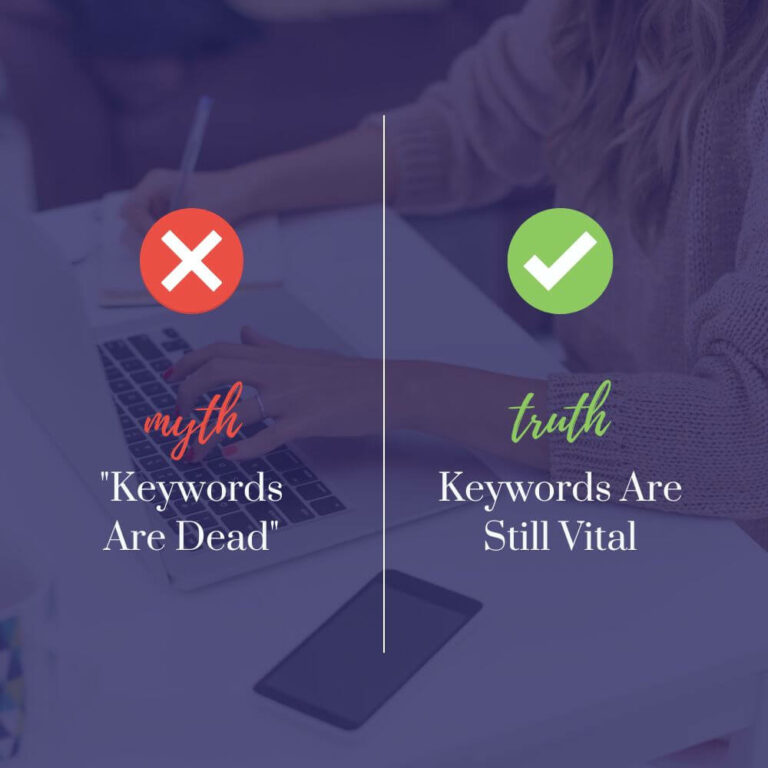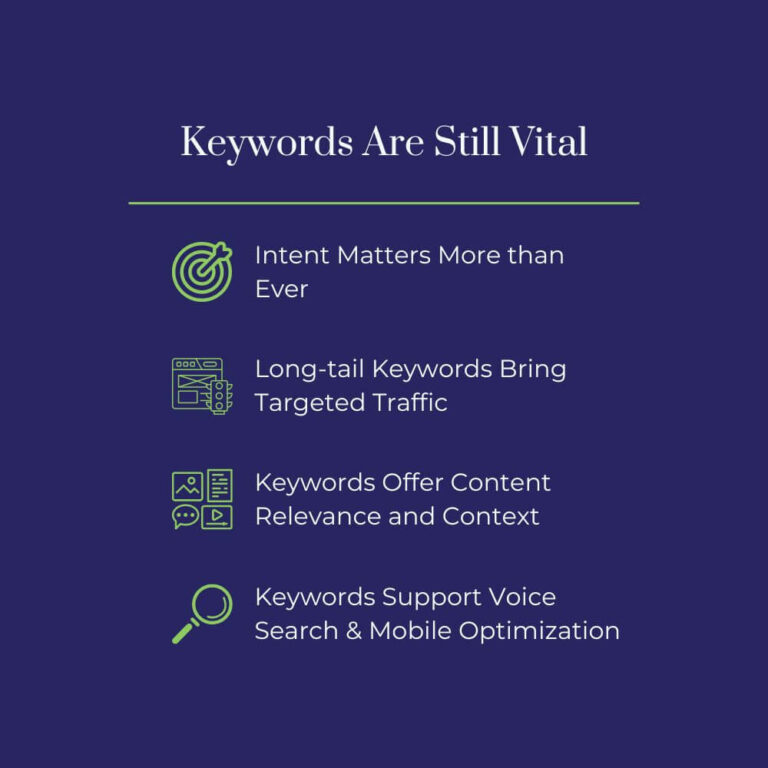Keywords have long been the backbone of Search Engine Optimization (SEO) strategies. From the early days of search engines to the ever-evolving algorithms of today, businesses and content creators have relied on keywords to improve their online visibility and attract relevant traffic.
But with the advent of sophisticated search algorithms and the rise of semantic search, some have questioned the continued significance of keywords in the SEO landscape.
In this article, we’ll explore whether keywords still matter for SEO, debunking myths and uncovering the undeniable truth behind their importance in modern digital marketing.
Table of Contents
In the past, SEO revolved around stuffing content with exact-match keywords to rank higher on search engine result pages (SERPs). Unfortunately, this practice often led to low-quality, spammy content.
Once hailed as the holy grail of SEO, keyword stuffing now became a double-edged sword.
While it could lead to temporary ranking boosts, the resulting content often resembled an unreadable jumble of keywords that failed to provide genuine insights or address user queries.
Websites that employed such tactics found their rankings plummeting.
As the internet matured and search engines like Google evolved into sophisticated entities, a paradigm shift occurred. The focus transitioned from appeasing algorithms to serving the real driving force behind online searches: users seeking valuable, relevant, and informative content.
The Myth: “Keywords are Dead”

With the evolution of SEO practices and Google’s algorithm updates, some voices in the industry have claimed that keywords are no longer relevant.
One of the key drivers behind this misconception is the advent of semantic search. This refers to search engines’ ability to understand the context and intent behind search queries, rather than focusing solely on individual keywords.
This development was a game-changer in the SEO landscape, as it allowed search engines to deliver more accurate and relevant results to users.
Even so, declaring keywords dead is an oversimplification that can lead many businesses astray.
The Truth: Keywords are Still Vital

It’s essential to recognize that user intent and keywords go hand in hand. Keywords remain the bridge that connects users with the content they seek, regardless of search engines’ abilities to discern context at an impressive level.
When you know the words and phrases users employ when searching for specific information, it’s easier to create relevant content that meets their needs.
In short, keywords still remain a fundamental aspect of SEO, although their usage has evolved. Instead of obsessing over exact-match keywords, modern SEO professionals focus on keyword research and semantic relevance.
Intent Matters More Than Ever
With search engines’ emphasis on understanding user intent, businesses must align their content strategy accordingly.
Content that addresses user intent directly has a higher chance of resonating with the target audience (and ranking on search engines).
To uncover user intent, keyword research is the answer. But this involves more than just identifying high-volume keywords. Look for variations that capture the nuances of user intent and the specific questions they wish to answer.
In addition, user intent also goes beyond SEO. It also plays a vital role in improving user experience (UX). When users find precisely what they’re looking for, they’re more likely to stay on a website longer, explore other pages, and potentially convert into loyal customers.

Long-tail Keywords Bring Targeted Traffic
Long-tail keywords, as the name suggests, comprise lengthier and more specific phrases that users input when conducting a search.
Unlike their broad counterparts, long-tail keywords delve into the nuances of user intent, capturing the specific questions, needs, and preferences of the audience.
While they may not garner the same search volume as broader keywords, long-tail keywords have an invaluable superpower: they carry higher intent.
And with higher intent keywords, you can drive more traffic to your site. This traffic represents users who are closer to taking action, whether it’s making a purchase, subscribing to a service, or engaging with your content.
Content Relevance and Context
Rather than shoehorning keywords into content, modern SEO champions the integration of relevant keywords in a natural, seamless manner. This is where content relevance and context come into play.
Search engines now consider not only the presence of keywords but also how they relate to the overall topic and the surrounding text. This contextual approach helps deliver more accurate results to users, ensuring that the content they encounter aligns with their true intent.
Businesses that prioritize user value by delivering informative, helpful, and insightful content will find themselves at a distinct advantage. For example:
You can tailor your articles and web pages to provide real value, capturing the attention and loyalty of your readers.
Voice Search and Mobile Optimization
With the rise of virtual assistants like Siri, Alexa, and Google Assistant, users are now adopting voice search as a convenient and hands-free way to search for information. Also, the widespread use of smartphones has made it easier to access the internet on the go.
Of course, voice search queries are worlds away from traditional typed searches. When speaking to a virtual assistant, users tend to adopt a more conversational tone and use natural language.
For instance, while a typed search for “best Italian restaurants” might do the trick, a voice search could take the form of a casual question like “What are some of the best Italian restaurants near me?”
To cater to voice search queries effectively, you need to figure out how users speak and the types of questions they ask. This involves diving into conversational language, exploring long-tail keywords, and adapting content to align with these natural language patterns.
Conclusion: The Truth About SEO Keywords Today

The evolution of SEO from keyword stuffing to user-centric algorithms signifies a leap in digital marketing practices. While the days of mechanical keyword stuffing are behind us, keywords themselves remain essential tools for optimizing content.
The key lies in a thoughtful approach that aligns with user intent and values user experience above all else. As you navigate the modern SEO landscape, remember that content created for users, not algorithms, stands as the true foundation of SEO success.




